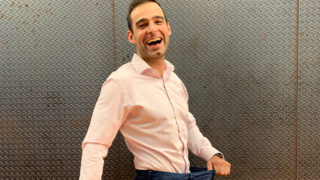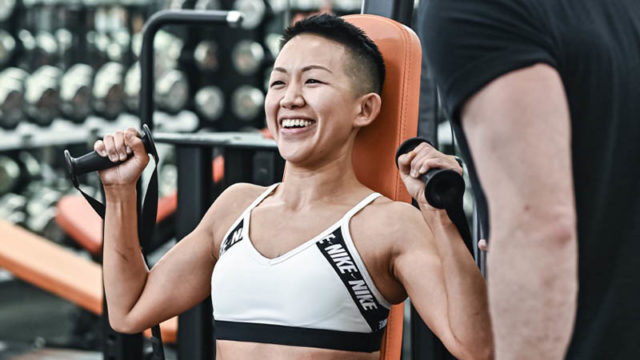If you’ve been diagnosed with breast cancer, it’s understandable that exercise and staying physically active might be one of the last things on your mind. But it’s actually one of the best things you can do to maintain and improve your physical and mental health. For one thing, it can help you regain a sense of control over part of your life. And, according to a recent a 2020 study in the Journal of the National Cancer Institute, women who engaged in regular physical activity before diagnosis and after treatment had a better prognosis with the disease than those who were inactive.
We chatted with PETE FISHER of ATP Personal Training about some relevant exercise options and tips for people at various stages of their breast cancer journey.
When can I start exercising?
If you’re just starting your treatment, it’s not advisable to begin a strenuous exercise programme at the same time. You’ll need time to understand how your body feels; some days you’ll have more energy than others.
If you have always exercised and it’s already part of your daily routine, then you can keep it up depending on how you feel, and modify as necessary. Don’t be afraid to dial things back as you need to and make sure you listen to your body, getting sufficient rest (very likely more rest than you are used to).
For those new to exercise, something like walking would be an excellent choice. Getting outside every day has benefits much greater than physical activity; you will also get fresh air, enjoy nature and likely sleep better that night. You could do this alone, taking much needed time for yourself to reflect and reset, or you could walk with a friend or family member, enjoying the time together.
As you start to recover from treatment, and breast cancer itself, you will be able to do more – and different – kinds of exercise. You can set goals based on your recovery; some people find it can even make them more determined to beat cancer if they have set goals for afterwards.
What kind of exercise should I do?
Honestly, the most important thing is that you find something you enjoy. You would ideally do some kind of cardiovascular exercise such as walking, jogging or anything that gets your heart pumping faster, and some kind of resistance training, or exercise that uses your muscles. Examples of resistance training could be weight-training or callisthenics (using your bodyweight). Yoga or Pilates are also excellent options.
But the truth is that there might be days when all you can manage is a slow walk around your home and maybe some arm or leg raises from the couch – and, on those days, just do those things. Listen to your body and remember that any kind of physical activity is better than none at all.
It’s also extremely important that you check with your doctor before embarking on an exercise programme – and that you find a trained coach to guide you at the gym. You need to ensure that you don’t overdo it and that you are performing exercises safely with correct form.
Something else to consider is that, during chemotherapy, you may be at increased risk of infection, so speak to your doctor about the risks of public gyms or pools.
How much exercise should I do?
This will vary greatly from person to person and also, for each person, from day to day. Let your body guide you; try to move every day but be very mindful of how you are feeling and how much energy you have. Don’t feel bad if you have to stop five minutes after you start some days; there will be other days when you can do much more than you expect!
For some people, a morning walk will be enough; for others, they may still go to the gym four times per week. Don’t compare your cancer journey to anyone else’s as it’s a very individualised and personal thing that can be different for everyone. Remember that, however good you feel, your body is still enduring a lot of stress (not to mention your mind), so above all be kind to yourself and do what you can.
What should I do next?
If you’re overwhelmed with too many options and aren’t sure where or how to get started, ATP Personal Training can help take the guesswork out of your exercise plan by building you a completely individualised exercise programme and guiding you through each exercise, every time you come to the private gym, with perfect form.
Our experienced coaches can also advise you on nutrition and, most importantly, challenge you to the right point that you feel a sense of achievement without excess fatigue. Why not come and see us for an initial consultation and let us take some of the stress out of what can be a very anxious time.
Other benefits of regular exercise
* Helping to reduce or avoid some side effects of cancer treatment, such as fatigue, weight gain, osteoporosis and lymphoedema (swelling in your arms or legs caused by a blockage to your lymphatic system)
* Improving your mood and assisting mental wellness by reducing stress and anxiety and relieving some of the symptoms of depression
* Preventing or reducing the loss of muscle tone that can occur during treatment
* Maintaining general fitness so you feel more alert and able to keep going
* Improving long-term health, reducing your risk of heart attacks and strokes
Find out more at atp.fitness.
See more in our Health & Fitness section.







